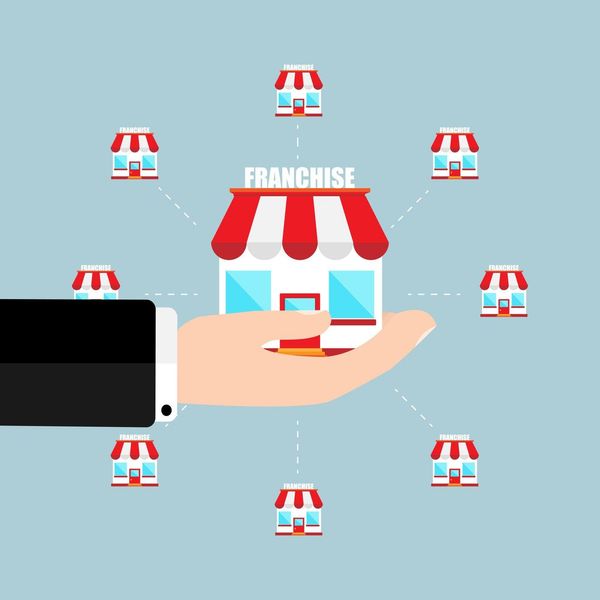
Buying a Franchise: A Tale of Two Franchisees
Two entrepreneurs buy the same franchise opportunity. One succeeds, one doesn’t. The stories of Fernando Cordova and Mitch York offer a lesson in the factors you should consider before you buy.
Story of a franchisee: #1
Cordova, 45, had owned a residential cleaning business since the 1990s and wanted to do more. Working with a franchise broker, he decided on Maui Wowi’s mobile cart option because it didn’t require a fixed location, and bought his Lake Forest, California, franchise in 2006.
Initially, Cordova planned to book his cart into stadium events. After speaking to another franchisee who worked at the Los Angeles Convention Center, he was excited about the possibilities. “But when I started to call places, it was difficult to get in to talk to people,” he says. Cordova quickly discovered that his sales experience landing residential cleaning accounts didn’t translate into pitching big corporate clients.
Lacking the know-how to make presentations or land contracts, Cordova decided to focus on smaller events, such as street fairs and festivals. “These were easier to get into,” he says, “but the percentage they charge to get in is very high--probably half of what you make. Once you do two or three events, you realize it’s a lot of work and you’re not making a lot of money.”
After six months, Cordova had a chance to get into the Irvine Spectrum, an upscale outdoor shopping center. Having been told that a vendor selling Italian Ice was making $15,000 a month, Cordova had high hopes. He spent the summers of 2007 and 2008 at the Spectrum, but the Southern California economy was starting to decline, and he grossed just $5,000 to $6,000 a month.
Cordova decided not to renew his franchise agreement. He recouped some costs by selling his equipment to another franchisee, but estimates he lost $75,000.
Story of a franchisee: #2
Mitch York, 52, had 17 years of experience in marketing, sales and executive management, including stints as president of Lending Tree, vice president of CMP Media, and senior vice president at Ziff-Davis Media when he bought his Maui Wowi franchise in 2002. When his division at Ziff-Davis was eliminated after 9/11, he decided to buy a franchise. “[It was] a midlife crisis,” jokes York. “Something about [Maui Wowi] caught my imagination, and it seemed like fun.”
Like Cordova, York faced many challenges arose as he got his Sayville, New York, business off the ground. “I was originally going to do a mall location, but retail rents in New York were too high,” says York. He switched to the mobile cart, and landed Yankee Stadium as his first account. “It was fun, interesting and profitable,” he says.
But York hadn’t anticipated “all the moving parts” involved in a mobile operation. Although he had many clients and was financially successful, he wasn’t happy. The work was “very hard to delegate,” says York, who ran into lots of problems with unreliable employees. “I personally was behind the wheel over 100,000 miles a year doing the day-to-day work.”
The New York market presented special challenges. “Even though the New York population is very dense, there aren’t many places for huge crowds to gather,” he explains. Realizing the mobile cart wasn’t going to fulfill his expectations, he developed a new business model: catering private events and parties, using smaller, more portable equipment.
York approached the franchisor with his catering idea. “They were very supportive. Their thinking was, if this is something that can help other operators create a new revenue line, this is good for everybody,” York says. “One of the things I liked about Maui Wowi is that when I got involved, they were still very new to franchising. I wanted a franchise that was going to be flexible and allow me to be part of the growth of their system.” The franchisor helped York source more portable equipment, adopted it for use by the entire system, and asked him to write a manual and train other franchisees in catering.
York says catering has done well in the recession because it costs less to operate, is less subject to weather, and allows for more competitive pricing. So far, several dozen franchisees he knows of are using his model.
Today, York focuses primarily on marketing, customer service and development. He solved the problem of unreliable employees by partnering with a network of other franchisees in different locations to handle jobs over a wide territory. For instance, if he has a customer in Boston, he works with the Boston franchisee to cover the event. Since switching his focus to catering in 2005, his franchise has grown from about 20 clients in 2006 to more than 150 today. And he has written a book, Franchise: Freedom or Fantasy? How to Know if A Franchise Is Right for You After Your Corporate Career, published in July 2009.
More articles from AllBusiness.com:
- Five Reasons Why Franchises Fail
- 3 Biggest Challenges Every Franchisee Faces—And How to Overcome Them
- How Long Does It Really Take to Open a Franchise?
- 10 Signs of a Great Franchise Opportunity
- 40 Reasons to Buy a Franchise
How to successfully buy a franchise
What factors made the difference in these operators’ success—and what should you know when buying a franchise?
1. Know what to expect. Both men used franchise brokers and talked to other franchisees, but were still surprised by unexpected twists once they actually got up and running. “There were a lot of things I didn’t take into account,” Cordova says. Don’t get so dazzled by a franchise’s potential that you forget to ask for hard numbers. Push franchisees to bring up any negatives or problems they ran into.
2. Focus. Cordova admits part of his problem was that he was still juggling his cleaning business at the same time. Other than his first few months as a franchisee, when his wife took over the cleaning operations, “I wasn’t focusing 100 percent on the franchise,” he says.
3. Experience is essential. Yes, franchisors offer training and assistance—but you still need to do lots of work on your own if you expect to succeed. The more experience you have in sales, marketing, management, operations and all the elements that make up a business, the better. “Marketing is so important,” says Cordova. “You really need to know how to market your own business.”
4. Timing matters. The state of economy, the commercial real estate market, the industry and the particular franchise at the time you buy make a big difference. For Cordova, the declining economy struck his franchise when it was already struggling; for York, it was a big factor in his decision to create his catering model. Research all of these factors to put timing on your side.
5. Know your competition. This includes other franchises in your system. Is your area becoming saturated with units, where you’ll be competing against other franchisees? Is the concept so new to your area that you won’t benefit from name recognition? Both situations have risks. Cordova believes that his market was oversaturated by the time he bought his franchise: “There are more franchisees in the same area than there are events.”
6. Be creative. As a franchisee, you must use your own initiative. When one route doesn’t work, try another. Know how much creativity your franchisor supports. Does the franchisor welcome ideas from franchisees, or do they shoot them down? If you’ve got lots of business experience and ideas of your own, you’ll likely be happier with a more flexible franchisor.
The franchise buying decision depends on you
“Any life experience is a learning experience,” says Cordova, who learned that a franchise is not for him: “I need to be in control of my own destiny.”
Franchising is the perfect fit for York, who’s considering buying another franchise to complement his Maui Wowi operations: “The model that I am currently working has vast potential.”
RELATED: Buying a Franchise vs. an Independent Business: What Are the Pros and Cons?
About the Author
Drawing on 20-plus years of experience as a journalist, business magazine editor and marketing copywriter, Karen Axelton specializes in writing about business and entrepreneurship.



